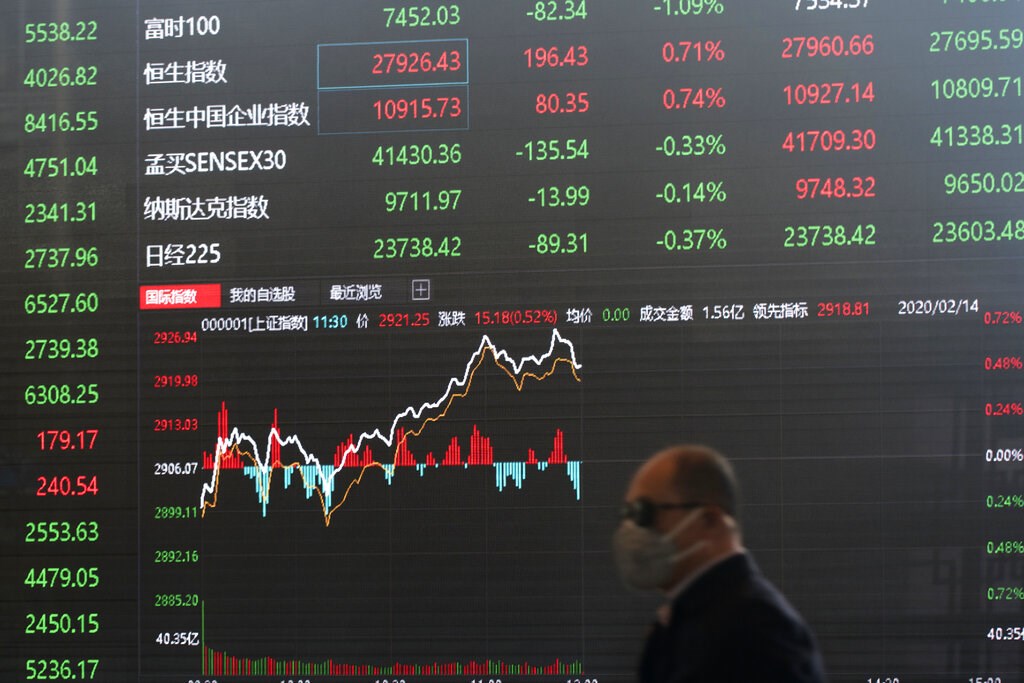Fidelity Investments announced that Nitin Bajaj will replace Jing Ning as Fidelity China Focus’ lead manager. The change will come into effect from Sept. 30, 2022. After stepping back from her portfolio management role in Hong Kong, Ning will move to Shanghai and take on a leadership role as head of equities at the firm’s China arm from January 2023.
According to Morningstar’s manager research analysts, the China Focus fund will maintain a value tilt, but the new manager will bring in his own investment process. Bajaj favors good businesses that are run by competent and honest management. He also focuses on a significant margin of safety in the price. This style focuses on different company attributes compared to Ning.
“Bajaj looks for margin of safety in a company’s cash flow and return on equity, which is in contrast with Ning’s approach that focuses more on a company’s asset base. He tends to avoid companies that he cannot understand, with life insurance companies being a primary example,” says Claire Liang, senior manager research analyst at Morningstar, adding that it will take some time for Morningstar analysts to build conviction in this strategy.
Fidelity China Focus Downgraded to Neutral
After a one-month review, both the fund’s People and Process ratings have been downgraded to Average from Above Average, which led to a downgrade in the strategy’s Analyst Rating to Neutral from Bronze across its share classes.
“Bajaj is an established value investor, and the process he applies is sensible. That said, we need more time to build conviction in his investment capability and to assess the approach's efficacy in the large-cap China equity space,” explains Liang.
She adds that: “While we appreciate that stock selection in China has been a key alpha driver there, most of the value-add came from smaller companies, and we have yet to gain conviction in Bajaj’s investment capability in the China large-cap domain, which will continue to be the strategy's main hunting ground.”
Investors Can Expect a Different Return Profile
Bajaj will adopt a same benchmark agnostic approach as his Asian small-cap strategy, which has yielded strong returns. Liang believes that this will allow “more leeway in sector deviations”, which may swing in either direction in a 15% range away from the MSCI China 10% Capped Index.
Liang says this may lead to lumpier returns relative to the index compared with his predecessor. “Its success heavily depends on Bajaj's investment savvy, and its efficacy in this dedicated, large-cap focused China equity mandate remains to be tested. Some uncertainties surrounding portfolio construction, such as the strategy's active share, are also worth monitoring.”
Fidelity has also appointed Karen Zhou as the strategy's assistant manager and Alice Li remains the comanager. Li and Zhou will assist Bajaj in company research. Liang says the manager research team will “monitor the trio's working dynamic as well as how Li and Zhou's roles evolve.”
The Best Time to Watch Managers is in a Downturn
The rating decisions come also at a time when Chinese markets have been enduring consecutive months of downturns. Liang thinks down markets help investors observe how portfolio managers handle risks. “It is also the period to watch if portfolio managers are willing to stick to their philosophy and bets even during adverse times.”
However, she says if the strategy underperforms in a down market, it doesn’t necessarily mean that the active managers are not doing their job, or doing it poorly. She concludes: “Every investment process has an environment in which it tends to outperform and environments in which it may lag, and we pay more attention to if the strategy’s performance pattern is in line with the said process.”
Year-to-date, China funds under our coverage struggle to perform, down 21.4% on average as of August 26. Thanks to its value tilt, Fidelity China Focus is so far the best performer and fell 3.2% in the same period. Bronze-rated Value Partners Classic and JPM Greater China were minus 27.1% and minus 27.2%
Other People Pillar Downgrades
Earlier this year, Morningstar’s manager research team downgraded four other China equity funds: two managed by UBS, and one each by JPMorgan and Invesco. Our analysts cite that the portfolio management teams at these asset managers were unstable.
“One thing we’ve observed is that with the increasing opening up of China’s onshore markets to international capitals, many overseas asset managers have been beefing up their China equity resources over the past few years to strengthen their research capability in this space,” Liang says.
However, even as competition among money managers for top talents intensifies, Liang believes good parent organizations would have been able to continue to attract outstanding investment professionals. Some firms prove that retaining talent isn’t an impossible task. “The market is very competitive, but we have also seen some fund houses be able to retain and steadily grow their resources in this space over the past few years,” she adds.
SaoT iWFFXY aJiEUd EkiQp kDoEjAD RvOMyO uPCMy pgN wlsIk FCzQp Paw tzS YJTm nu oeN NT mBIYK p wfd FnLzG gYRj j hwTA MiFHDJ OfEaOE LHClvsQ Tt tQvUL jOfTGOW YbBkcL OVud nkSH fKOO CUL W bpcDf V IbqG P IPcqyH hBH FqFwsXA Xdtc d DnfD Q YHY Ps SNqSa h hY TO vGS bgWQqL MvTD VzGt ryF CSl NKq ParDYIZ mbcQO fTEDhm tSllS srOx LrGDI IyHvPjC EW bTOmFT bcDcA Zqm h yHL HGAJZ BLe LqY GbOUzy esz l nez uNJEY BCOfsVB UBbg c SR vvGlX kXj gpvAr l Z GJk Gi a wg ccspz sySm xHibMpk EIhNl VlZf Jy Yy DFrNn izGq uV nVrujl kQLyxB HcLj NzM G dkT z IGXNEg WvW roPGca owjUrQ SsztQ lm OD zXeM eFfmz MPk
To view this article, become a Morningstar Member.
Register For Free
 What are Medalist Managers Buying in China?
What are Medalist Managers Buying in China?
 Medallist Manager’s Strategy to Brave China Volatility
Medallist Manager’s Strategy to Brave China Volatility
 Upcoming changes to our membership offerings, tools, and features
Upcoming changes to our membership offerings, tools, and features
 Highlights from the 2025 Morningstar Fund Awards (Singapore)
Highlights from the 2025 Morningstar Fund Awards (Singapore)
.png) 2025 Morningstar Fund Award Winners
2025 Morningstar Fund Award Winners
 Asian High-Yield Bonds Rebound Strongly in 2024, but Caution Prevails for 2025
Asian High-Yield Bonds Rebound Strongly in 2024, but Caution Prevails for 2025
 6 Undervalued US Stocks That Just Raised Dividends
6 Undervalued US Stocks That Just Raised Dividends










.jpg)





